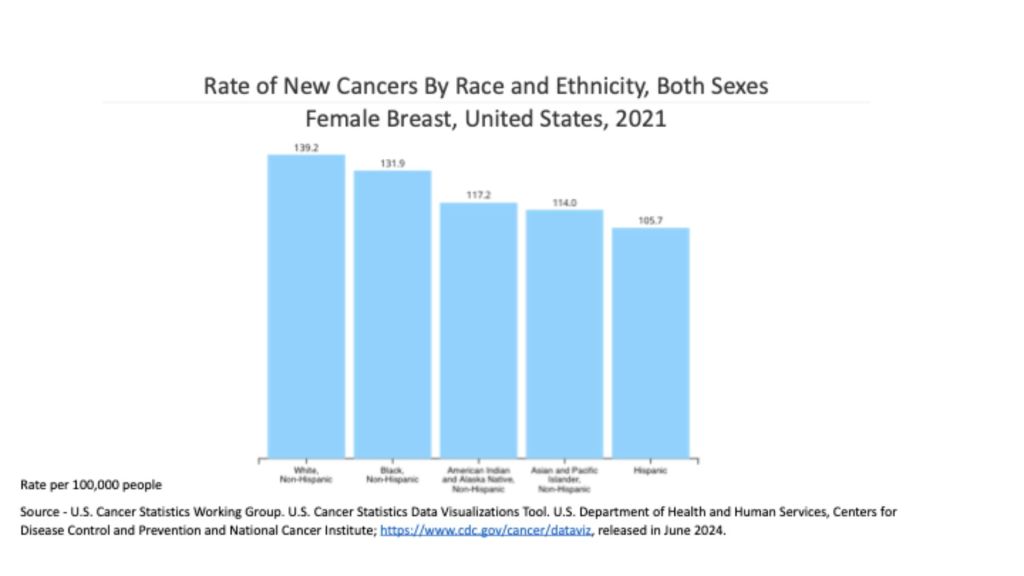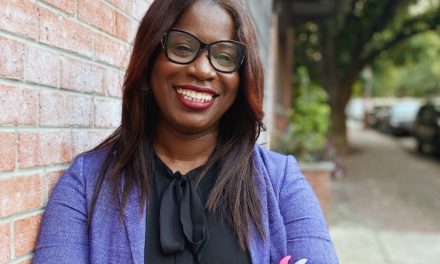By AFRO Staff
Artificial intelligence (AI) can bring on feelings of hope for unlimited discovery just as much as it brings on fear of the future. In 2024, there’s no area left untouched by the possibilities of AI: art, music, all types of sciences and on and on.

Credit: Unsplash / Angiola Harry
The range is awesome and fills us with awe and fear. Now, experts say AI can enhance medical testing beyond the results that have been garnered in the past. Leadership Baltimore County is opening the door to that information in its Oct. 29 event, “Can AI Save Your Life?”
Panelists Jayful Doswell, founder of Juxtopia; Todd Marks, founder of Mindgrub Technologies and Tim Merchant, founder of RadNet, will discuss how harnessing data-driven insights for early detection and AI can be transformative.
According to the National Cancer Institute NCI, “The rate of new cases of female breast cancer was 129.4 per 100,000 women per year. The death rate was 19.3 per 100,000 women per year.”
NCI statistics on breast cancer reveal that “approximately 13.1 percent of women will be diagnosed with female breast cancer at some point during their lifetime, based on 2018–2021 data, excluding 2020 due to COVID.”
According to the Breast Cancer Research Foundation (BCRF), “While breast cancer incidence rates among Black and White women are similar, mortality rates are markedly different, with Black women having a 38 percent higher death rate from breast cancer.”
BCRF attributes the disparity to “social, economic, geographic, and lifestyle factors…Black women are statistically more likely to have diabetes, heart disease, and obesity, and are less likely to breastfeed after childbirth—all of which are risk factors for breast cancer. They are more likely than White women to have inadequate health insurance or access to health care facilities, which may affect screening, follow-up care, and completion of therapy.”
RadNet implemented the ACT Program — a patient outreach initiative driven by artificial intelligence and a deep commitment to equitable healthcare and improving health outcomes for all.
The ACT program combines advanced AI with the compassion and expertise of specially trained contact center agents. By understanding how each individual prefers to engage, RadNet has seen an increase in access to screenings, especially for African-American women, where disparities in early detection have historically been a challenge.
To further drive awareness in the African-American community, RadNet has partnered with WNBA legend, Sheryl Swoopes, who has personal ties to the devastating impacts of cancer, to help spread the word that early detection saves lives. The goal is simple: to make sure most women get screened, more lives are saved and every community has equal access to the care they deserve.
The discussion will be 8:30 a.m. to 10:30 a.m., Oct. 29 at USI, 11350 McCormick Road, Executive Plaza III, Hunt Valley, Md.
The post Can AI be a lifesaver in the fight against breast cancer? appeared first on AFRO American Newspapers.











